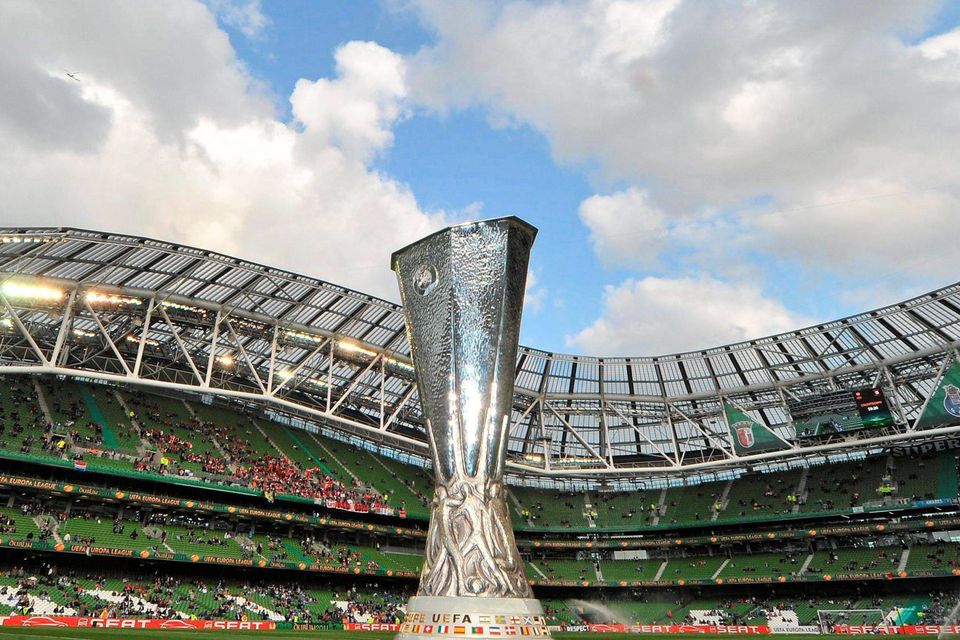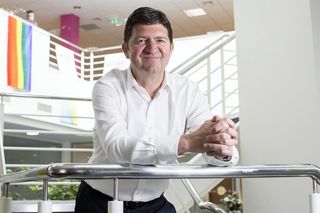Organised Euro 2020 bid team had no reason to worry
The Aviva Stadium, which hosted the 2011 Europa League final between FC Porto and SC Braga, will be the venue for three Euro 2020 group games and one round of 16 fixture. Picture credit: Brian Lawless / SPORTSFILE
IN the end, the FAI bid to stage four games in Euro 2020 did not emerge successful until the fourth and final round of voting.
However, that fact disguises the ease with which they secured co-hosting rights for a novel renewal of football's second biggest international tournament.
The Irish delegation in Switzerland learned afterwards that their proposal was the third strongest technical bid behind London and Munich - the two parties that were in contention for the final until the Germans withdrew with an eye to the entire 2024 competition.
A recent history of football demonstrates the extent to which a quality bid that ticks all the boxes can lose out when the ultimate decision is made by a committee vote.
Lobbying has been an important part of the process for the Irish camp, and their fate lay in the hands of UEFA's Executive.
SIMPLIFIED
The task was simplified beforehand when it emerged four of the 19 competing nations had already been cut before it went to a vote.
Belarus, Bulgaria, Macedonia and Israel had failed to meet requirements and were out of the running.
That reduced the field to 15 bids competing for 13 spots. After London was ratified for the semi-finals and final, Munich, Baku, St Petersburg and Rome won the seven-bid race for a quarter-final and three group games.
The third phase of voting offered a chance for regional zones which were not yet represented. As the Dublin proposal was grouped in with London, Glasgow and Cardiff, they were out of the running for this one because of Wembley's success. This procedure succeeded in getting Copenhagen and Bucharest across the line.
After that, the blazers moved to the concluding round which consisted of eight entrants vying for the remaining six spots and a standard package.
The executive members were asked to rank their choices by order of preference with the first ranked given six points, the second five, and so forth all the way down to one point.
Amsterdam came home in front with a tally of 58 points, but Dublin claimed second spot with a return of 55. Bilbao (50), Budapest (48) and Brussels (43) had a fair bit of breathing space.
At the bottom, it was a scrap between Glasgow, Cardiff and Stockholm for the final berth - 22 points was enough for the Scots, just one ahead of Wales.
Over the past couple of months, it became apparent that the Celtic nations were in competition. The Irish bid turned out to be miles ahead.
"I know all the key characters who were going to vote," said John Delaney last night.
"I'd been speaking to them one on one in Monaco (last month) and again on Thursday night I looked a lot of them in the eye and you really felt with a high degree of confidence that we were in a great position.
"But you never know. As Trapattoni would say, 'the cat wasn't in the sack' so to see Dublin coming out was great."
For the Irish party, whose efforts were led by co-ordinator Declan Conroy, it was the reward for a well executed project.















